|
“Peter and his companions had been overcome by sleep, but becoming fully awake, they saw his glory and the two men standing with him.” -Luke 9:32 Twice in the Gospels we hear of the trio of disciples sleeping at pivotal moments in Christ’s life and ministry: at the Transfiguration – in this Sunday’s Gospel – and in the Garden of Gethsemane during Christ’s Agony. Both times, Christ is in deep prayer. And both times, Peter, James, and John are “overcome by sleep.” I get it. The group of men have just hiked up a mountain. It would have been normal to rest after such a grueling endeavor. Similarly, in the Garden, Jesus took the three disciples to pray after the Feast of the Passover—a long, filling meal complete with wine. I think of all the times I’ve napped after a holiday meal and sympathize with Peter, James, and John. In these scenes, they are so human. They become tired and rest their eyes. And yet, because of their physical tiredness, they miss out on God’s glory. In this week’s Gospel for the Second Sunday of Lent, Jesus is transfigured and his three beloved disciples are offered a glimpse of the glory to come—not only the glory of the Resurrected Christ, but the glory that awaits all men and women who allow themselves to be transformed by his grace. This Lent, I find myself asking, “Am I asleep with his disciples? What’s causing me to shut my eyes to God’s glory?” These questions are what have guided my Lenten journey as I discern how to grow in holiness this season. Each year, the Church in her wisdom asks us to reflect on what is making us spiritually sluggish and helps us prepare for Easter through prayer, fasting, and almsgiving. By ramping up in these three Lenten tenets, we can grow in our ability to see God’s will and the Holy Spirit at work in our lives. Had the Apostles been awake throughout the entirety of Christ’s Transfiguration, they would have basked longer in this glory—fear and confusion would not have gripped them. Lent calls us to wake up, to be alert, not only for the Easter celebration, but for God’s invitation to greater holiness throughout our lives. Pope Francis highlights Lent as the continuation of the “journey of conversion.” This journey is a lifelong one. And yet, seasons such as Lent, which focus on an even greater attention to prayer, fasting, and almsgiving, often spur us deeper and further on this journey towards Christ. As Pope Francis encouraged in his 2019 Lenten message: Let us not allow this season of grace to pass in vain! Let us ask God to help us set out on a path of true conversion. Let us leave behind our selfishness and self-absorption, and turn to Jesus’ Pasch. Let us stand beside our brothers and sisters in need, sharing our spiritual and material goods with them. In this way, by concretely welcoming Christ’s victory over sin and death into our lives, we will also radiate its transforming power to all of creation. The goal of Lent is not only Easter, but Christ Himself. This Lent, may our participation in prayer, fasting, and almsgiving help us shake off the drowsiness that shuts our eyes to God’s glory. For more resources to accompany you throughout your Lenten journey, please click here. Questions for Reflection: Am you asleep with Christ's disciples? What’s causing you to shut your eyes to God’s glory?”
0 Comments
I remember sharing an odd insight with my fiancé as we walked briskly up to the cathedral where we would soon be married. “This is going to be hard,” I said, referring to marriage. This might have caught most people off guard. It’s not common for a young, blissful couple about to embark on a lifelong journey of commitment to think about its difficulty. I didn’t know at the time how true these words were, only that they were necessary for understanding some of the implications of any lifelong commitment. It’s a lot easier, and a lot more enjoyable, to think about all the beauty involved in marriage: visions of your spouse bringing you breakfast in bed, selflessly offering to do the laundry, bringing home flowers “just because,” going on countless adventures, experiencing the thrill of starting a family, buying homes, building careers, and doing it all as a team, forever. In February, the United States celebrates love on Valentine’s Day. The Church celebrates a form of love as well, with February 7-14 being National Marriage Week in the US and February 10 being World Marriage Day. Celebrations of love are appropriate and beautiful, but I think we do love and marriage an injustice if we only celebrate what we consider to be positive and only on certain days. My husband and I continue to learn—after three years of marriage and two children—that true love is sacrifice. More romantic to me than any bouquet is my husband getting up early with one of our sons, taking the trash out, or working to improve our almost 100-year-old home. The moments when he gives of himself in quiet ways are what make marriage beautiful. And our journey of learning the selfless love Jesus modeled for his disciples is a lifelong one. We are learning we must choose to love each other after being woken up 3 or 4 times a night, after 2 hour-long commutes a day, after changing countless diapers, mediating children’s fights, trying to solve the latest home issue, and working on a budget. This--this is what makes marriage hard: the choice to give of oneself in the midst of imperfect and less than ideal circumstances. This is the tip of what I meant that day when I told my husband that marriage would be hard. I didn’t know all the details, just that it was a reality we would need to grapple with in the years to come. Pope Francis speaks often of the realities of marriage throughout his preaching. He said in one homily that marriage is not fiction, acknowledging that “the path is not always a smooth one, free of disagreements, otherwise it would not be human…It is a demanding journey, at times difficult, and at times turbulent, but such is life.” I love that he is so down to earth and realistic in his observations. Yes, marriage is sacred and beautiful and designed by God. But it is also hard work, something I think may need to be more addressed in our culture – especially today when this lifelong commitment seems less and less possible. The fact that marriage is hard is not cause for fear, despair, or surrender. The fact that it’s hard means your marriage is normal and human. Simply because it is comprised of two people with past hurts, wounds, weaknesses, and imperfections, marriage will always be complicated. But it is within the context of a lifelong commitment that these wounds and imperfections can be transfigured. This is the beauty of marriage: when seen in the light of the eternal, it enables each person in the relationship to be sanctified. What transfigures marriage is prayer, grace, and, yes, hard work. Marriage is the daily choice to give of oneself, to surrender, to submit mutually to one another. As the Catechism of the Catholic Church notes, “After the fall, marriage helps to overcome self-absorption, egoism, pursuit of one's own pleasure, and to open oneself to the other, to mutual aid and to self-giving” (CCC 1609). Pope Francis has made note of this as well, saying that a healthy marriage requires the mutual gift of self and the grace of Christ. In a dialogue with engaged couples on Valentine’s Day in 2014, Pope Francis advised those present to entrust themselves “to the Lord Jesus in a life that becomes a daily spiritual journey, made up of steps – small steps, steps of joint growth – made up of the commitment to become mature women and men in the faith.” He continued, “The more you entrust yourselves to Him the more your love will be ‘forever,’ capable of being renewed and it will overcome every difficulty.” As we continue to reflect on love and marriage in our culture, let us remember that this call to love is not reserved for married couples, but for all Christians. Every act of service and sacrifice made for others is the living out a life of discipleship. Love is hard. But the same Christ who knelt before his disciples and washed their feet, the same Christ who multiplied the wine at the Wedding Feast at Cana, enables us to live this love as we pick up our crosses, daily, to follow him. Let us entrust ourselves and our relationships to the Bridegroom who makes all things new. Question for Reflection: How can you practice the sometimes difficult love Christ calls us to in your life today? For more resources on Marriage and Family, please click here. In AD 590, when a man named Gregory—the abbot of St. Andrew’s Monastery in Rome—was called upon to serve as Bishop of Rome, he responded with an open letter to the Church: "Pastoralis curae me pondera fugere" — “I have thought to flee from the burdens of pastoral care.” In essence, Gregory pleaded to be spared the heavy and awesome responsibility of the office of bishop. His letter formed the opening lines of his work Pastoral Care (Regula Pastoralis), one of our church’s greatest works of pastoral theology by one of our church’s greatest shepherds. Interestingly, we celebrate Pope St. Gregory the Great’s feast on September 3, the day he was consecrated pope — not the anniversary of the saint’s death, as per usual — perhaps as a testament to the light of personal holiness and institutional reform that he exhibited during the dark days, literally the historical “Dark Ages,” of the church when he was elected. Though primarily addressing his soon-to-be brother bishops in Pastoral Care, St. Gregory’s words resonate with all those who exercise leadership and responsibility in ministry, especially in light of the painful days in which our church now finds herself. In times of turmoil, St. Gregory believed that God calls all the baptized faithful — laity and clergy, women and men, young and old — to the task of renewal in the apostolate. St. Gregory did not mince words when he called out leaders “who aspire to glory and esteem by an outward show of authority within the holy Church,” and as a result, “when those who go before lose the light of knowledge, certainly those who follow are bowed down in carrying the burden of their sins” (Pastoral Care, I.1). He observed, “For no one does more harm in the Church than he, who having the title or rank of holiness, acts evilly” (Pastoral Care, I.3). St. Gregory’s great handbook on pastoral care challenges the core values and virtues that ought to shape our Christian life and community. In aspiring to roles of leadership, Gregory makes the striking remark that “whosoever was set over the people was the first to be led to the tortures of martyrdom” (Pastoral Care, I.8). In other words, Gospel ministry in the footsteps of Jesus, especially for those serving in leadership, is a laying down of one’s life — one’s time, talent, treasures — so that the power of the crucified and risen Christ may live in us. The result is not necessarily “success,” but joy and salvation. In imitation of Jesus, true pastoral care conquers the love of power with the power of love. In calling others to holiness, what made Gregory truly “great” was that in spite of his strengths, he never lost sight of his own weaknesses, sins, failures, and need for constant conversion. He ends his work by stating: “I, miserable painter that I am, have painted the portrait of an ideal man; and here I have been directing others to the shore of perfection, I, who am still tossed about on the waves of sin. But in the shipwreck of this life, sustain me, I beseech you, with the plank of your prayers, so that, as my weight is sinking me down, you may uplift me with your meritorious hand.” (Pastoral Care, IV) In short, we Christian brothers and sisters need each other more than ever. We need each other to offer joy, consolation, encouragement, and a helping hand to one another. That is what makes ministry not only possible, but even worth doing. We hold out hope that our God never ceases to call forth church leaders and Christ followers like Gregory to lead us through the Dark Ages, in whatever age they seem to be dawning. When you hear the name St. Augustine, what do you think of? Probably something about the Confessions, arguably his most famous work. Or perhaps you remember that he is one of the first doctors of the Church. But do you know about his spiritual journey from youthful hedonism to prominent theologian?
St. Augustine was born in the mid 300s in North Africa to a Christian mother and a pagan father. Initially educated in rhetoric, as a teenager, Augustine embraced a life of comfortable vices, which he outlines in his autobiographical and philosophical work the Confessions. Eventually, his intellectual pursuits lead him to Europe, into and out of Manicheism (a dualist religion based on pure reason), and back toward the religion of his childhood. Through the evangelizing work of St. Ambrose, Augustine was finally baptized into the Christian faith in his early 30s. He went on to become one of the early Church’s most important philosophers. For cradle Catholics like me, our faith journeys are nowhere near as dramatic as St. Augustine’s conversion from corrupt youth to doctor of the Church. Nevertheless, there are always opportunities for daily conversion! The teenage Augustine would pray, “Give me chastity and continency, only not yet.” How often do we catch ourselves praying in a similar vein? “Give me temperance—but not until I’ve eaten three packages of Oreos”; “Give me a stronger desire for prayer—but maybe not until next week, after I’m done binge-watching this TV show.” Like Augustine, we often find ourselves wrestling with our human weaknesses and our desire to do things on our own timeline rather than God’s. But even as we struggle to overcome our personal vices, God draws us closer to Himself, taking our fractured pasts to create a beautiful whole. St. Augustine’s theological and philosophical treatises would perhaps have not been so fervent or persuasive had he not previously so fully embraced bad philosophy before his conversion. His secular education and his training in rhetoric and Platonic philosophy prepared him for his work defending true Christian theology and refining its philosophy—so much so that he is recognized as one of the original doctors of the Church. Long before Augustine had come to fully accept the Christian faith, God was already preparing him for his future role as bishop and philosopher. Likewise, our past does not restrict our future. Choices that ended up leading us seemingly nowhere, periods of doubt or conflict—God can take these moments of human weakness and use them to bring us closer to Him. Like St. Augustine, even a previous decade of promiscuity could remind us of how empty is a life not lived for Christ. St. Augustine is living proof that no one—no matter how seemingly corrupt, how spiritually lost, or how morally confused—is beyond the power of God’s grace. On St. Augustine’s feast day, let us consider where we are on our faith journeys. Where is there room for daily conversion? How can we learn from our past failures to more fully embrace a future lived with Christ? Question for Reflection: What failure can I use from my past to build up my relationship with Christ? St. Paul offers us this challenge: “Be filled with the Spirit . . . giving thanks to God the Father at all times and for everything in the name of our Lord Jesus Christ” (Eph. 5:20) (emphasis added). Be thankful “at all times” and for “everything?” “Well that would seem to include suffering and evil. Really Lord – you want me to be thankful for that trial in my life? I'll be thankful for other things but not for that. That's impossible! Lord, at the very least, maybe you could tell me a little bit more about how I can live this radical gratitude? Help my unbelief!” This is how my prayer dialogue went with God one day as I examined my attitude toward gratitude. I thought to myself, “Do I treat gratitude as just one of those nice pious sentiments that I should do in general, but ignore when it costs me? In other words, do I make gratitude just a platitude?” I know I have treated gratitude in that way and have brushed off the Christian teaching to be thankful 'at all times' as idealistic on more than one occasion. I began to examine my soul more in depth. Why do I do this? “Usually,” I concluded, “it is because of a lack of knowledge as to why something is good for me and because my thoughts are too limited on the topic.” But God wants to break open our limited thoughts and actions. So I pressed on in my search for a deeper meaning of gratitude. Here is what I discovered. I read a book recently that changed my perspective on gratitude. The author explained that gratitude is not just a good practice to do occasionally to uplift our spiritual lives, but is actually a necessary law of every Christian spiritual life. Gratitude is not an option; it is something we have to practice regardless of temperament, disposition, or circumstance. Based on my reading, I came up with two patterns for our spiritual life: the “cycle of spiritual fruitfulness” and the “cycle of spiritual emptiness”. The cycle of spiritual fruitfulness begins with trust in God, which is nourished through faithfulness to one’s prayer life. Through prayer, gratitude grows. Gratitude is being aware of God’s many gifts in the daily happenings of our lives. Gratitude then becomes a necessary part of trust, especially in the midst of our suffering because gratitude opens up our heart to God. As we see more of God in our lives, then we give more to God and in turn are better able to receive more of God's love and grace in our life. This cycle, which begins with trust and gratitude, then repeats as we grow in love and become more loving gradually. This can be boiled down to: Trust through Prayer → Gratitude → Opens Heart → More Love The cycle of spiritual emptiness begins with a lack of trust in God and a lack of faithfulness to one's prayer life. Negativity focused on our weaknesses, what we lack, and our suffering replaces gratitude, closing our hearts and making us less capable of receiving God's love. We may even sin, like Adam and Eve in the Garden of Eden, whose ingratitude ultimately led to the first sin (Genesis 3). If we let this endure too long, then our whole life can become one big storm of sadness and anger. This can be boiled down to: Distrust through Not Praying→ Negativity → Closed Heart → Less Love Radical Gratitude Reconsidered The cycle of spiritual fruitfulness offers us several good reasons for why St. Paul instructs us to be grateful at all times and for everything with no exception. If I want to open up my heart more to the Lord and thereby love more, then I must find a way to be thankful - even for the most difficult suffering. Thankfulness is not an option reserved only for those who describe themselves as sanguine or optimists; thankfulness is a necessary part of holiness. It is therefore no coincidence that the highest Sacrament in the Church, the Eucharist, in Greek literally means “thanksgiving, gratitude.” With this in mind, I went back to my dialogue with God. I asked God for the grace to be more grateful in my daily life for everything. God, in turn, has asked me when I am tempted to be ungrateful and negative to make an act of trust in the moment and find something to be grateful for – health, the fresh crisp autumn air perhaps, or even more profoundly – my daily Sacrament with my wonderful wife – and thereby to become more aware of His love in my life. Slowly then, I become a little more grateful and a little less negative. Eventually I hope to build a habit of radical gratitude for every occasion in my life. This gratefulness does not come overnight and does not necessitate a formal act of thankfulness at every moment. As I become more grateful in those little moments, I will not only be able to resist ingratitude in the more difficult moments, but will also be better able to be grateful even for new sufferings. In this way, I am trying slowly to become thankful at all times by committing to a few acts of trust each day through gratitude. Radical gratitude is possible, but only through God’s wonderful grace! Through grace, I have come to learn the importance of radical gratitude and the cycle of spiritual fruitfulness. I choose the cycle of spiritual fruitfulness. What cycle are you on? Come Holy Spirit, make all of us more radically grateful! Being comfortable with dependence is a struggle for me. I absolutely hate to be a burden on anyone. In fact, my family constantly reminds me that it’s OK to ask for assistance and guidance. Several years ago in college, for example, I began to have car troubles that created a need for help with transportation. My parents reminded me that my friends would be there for me to lean on, reassuring me that they would in fact be glad to help. I was pleasantly surprised when each friend I asked for help gave a resounding, “Of course!” Self-reliance seems to be a virtue valued by society because we are taught that it is better to give to others than to take. But when taken too far, the negatives of this quality actually erode our trust and relationships with other people, as well as our desire for God. In the Acts of the Apostles, we learn how the members of the early church relied upon one another and became stronger because of this support. We are humbled when we rely on others and on God, but we are also brought closer together as a result. Recently, I read about Jabez’s prayer in the Bible. Jabez calls out to God asking, “Oh, that you may truly bless me and extend my boundaries! May your hand be with me and make me free of misfortune, without pain!” Jabez turns to God in prayer, showing strength in dependence on God. Dependence is synonymous with prayer. It requires humility, an acknowledgement that we need God to help us grow and become more like him. 1 Peter 5:7 says, “Cast all your worries upon him because he cares for you.” God wants us to ask for his blessings in prayer, to strive for big goals and dreams, not settle for mediocrity. But in all we do, we are called to glorify the Father, just as Christ did on earth. Although not every one of our prayers is answered in the way we ask, God does hear each one and answers them in some way. Sometimes, an answer may come in the form of hardship or suffering. Conversely, an answer may come in the form of silence. Other times, an answer may come as blessings, an “extension of boundaries.” Regardless of the outcome of our prayer, God invites us to depend on him in the midst of any situation we may find ourselves in – whether we are in a position of strength or weakness. With time, experience, and prayer, God continues to show me how to reach out to others as resources and guides. Over the summer, I began to pray something like Jabez’s prayer. I had asked God for ways to help me become more connected to my parish, and he responded by having a pastoral associate invite me to help form a young adult ministry in the parish. I reached out to other young adult ministry leaders who offered their suggestions and advice, and they put me in contact with other diocesan leaders who were wonderful resources as well. Several friends also offered their support for the ministry and have helped to form a core planning team. Since the ministry had its first event in September, I encounter someone new looking to join or share the ministry with someone else several times a week. We’ve even had other parish ministries ask how the young adults can help be part of their evangelization missions. Our territory is enlarging, as Jabez would say. God, and other people, want to help us and be a part of our lives – we just have to ask. Questions for Reflection: Can you think of a time when you had to rely on the generosity or goodwill of others? How did it make you feel? “Practice patience toward everyone and especially toward yourself. Never be disturbed because of your imperfections but always get up bravely after a fall.” -St. Francis de Sales A few years ago, I had the opportunity to travel to Rome, Italy. To this day, the pilgrimage showers graces into my life. One day on the pilgrimage, we went to the Basilica of Sant’Agostino and prayed in front of a painting by Caravaggio called the Madonna di Loreto. In it, Caravaggio paints dirty, unkempt pilgrims kneeling in front of Our Lady and Jesus. Two years later, the image is still embedded in my mind. The Rome pilgrimage seemed to be a small microcosm of my life. My struggles and weaknesses were the same struggles and weaknesses I encountered back at home and work, yet in Rome they had a different weight. My frustrations with my weaknesses were still there, but it wasn’t until I was looking up at that painting that I realized that the pilgrimage was a process. My sin and weakness, my toil, my striving for sanctity—all of this was a process. The walking, the waiting, the impatience, the stumbling, the praying, the joy, the suffering—all was part of my pilgrimage and contributed to the end or goal: sanctity. I found myself praying for patience, and was informed by a fellow pilgrim that the root word of patience is “to suffer.” I found this definition fitting for the journey. Today, we are all on a pilgrimage aimed toward Heaven. In my walk, I find myself quickly frustrated at my stumbles, my repeated sin (that for some reason I just cannot get over), my judgment, my lack of love, and the list could go on. This frustration with the pace of my walk on the pilgrimage to salvation is not helpful for the walk—it is inhibiting. My walk requires patience with others and with myself. Looking at that painting by Caravaggio, I realized that we are the pilgrims—dirty from the journey, imperfect, on our knees asking Our Lady for the gift of her Son. He receives all of us as we are on this walk, and patience in the process will lend to an easier recovery after a stumble, a lighter load to carry. Let us grant ourselves patience throughout our pilgrimage to our end, Jesus Christ. As St. Teresa of Calcutta reminds us, “We have only today. Let us begin.” Where has the time gone? I’ve been asking myself this question over and over again throughout the past few days. Having just graduated from college, I find it quite surreal that my life is no longer dominated by the academic schedule. I almost feel as if I am a new person, having joined the “real world” as a young adult. It is exciting to have entered a new chapter in my life and exercise control over fulfilling my desires and goals in life. During major times of transition, I think it is beneficial to take the time to seriously reflect on all who have supported me along the way and up to where I am now: typing this after a day’s work at the office in a new city. As senior year drew to a close, I recalled moments not only of joy but also of sadness and difficulty. Remembering who it was that remained at my side during those moments of formation and struggle, and valuing their friendship and presence in my life, causes me to thank God for those college experiences. Those relationships caused me to glimpse the faithfulness and love of God. Sometimes, I can’t help but wonder whom I have touched with my own presence or friendship. As a human being, I am imperfect. I experience weakness. I worry. I have doubts and deficiencies. While these are important to acknowledge, I cannot waste time dwelling on them. In my shortcomings, my relationships with others may be strained, but there is also an opportunity to grow even closer to one another. Similarly, one’s waywardness is always ready to be met with God’s faithfulness: “If we are unfaithful he remains faithful, for he cannot deny himself” (2 Tim 2:13). We are called to model God’s faithfulness in our own friendships. The authenticity of such a relationship is made plain especially in times of difficulty. I like to recall Job’s friends who, upon seeing his experience of great loss, “sat down upon the ground with him seven days and seven nights, but none of them spoke a word to him; for they saw how great was his suffering” (Job 2:13). Similarly, “Two are better than one… If the one falls, the other will help the fallen one. But woe to the solitary person! If that one should fall, there is no other to help” (Eccl 4:9). There were many times throughout college that people “sat down upon the ground” with me and many times I did the same for others. I truly saw how “two are better than one,”—how we need one another to help us when we fall. Talking to my peers as graduation approached, I heard and shared thoughts of both excitement and apprehension. Graduation sometimes resembles the “real world” knocking on one’s door with a collection call. I agreed with this somber view until I attended a retreat where I heard it said that the “real world” touted by society was nothing more than a deprivation of what readily exists for the faithful: the Church. At every moment, God walks with us. He readily comforts us, listens to us, calls to us, and freely and completely offers His perfect love to us. While the world we live in can be unforgiving, rough, and fatiguing, let us recall Who walks beside us and never fails us. We are called to imitate this unfailing love and walk beside our brothers and sisters. Our lives are spent in pilgrimage seeking God. Along the way, we often encounter others who are seeking the same end. Sharing this pursuit, then, becomes a shared labor of faithfulness and strength. We are weak on our own, but together, as we experience in the Church, strength and comfort are found to help us journey on. As one of my friends reflected, “[T]he journey to heaven is not a solo trek. You seek to bring everyone with you. If one person falls, you travel to him or her, and help them get up, and you carry along together towards the destination. This is what God has entrusted us to do, to reveal such love as His love.” God is faithful, especially in times of great change. As I begin this new chapter of my life, I strive to reveal the faithful love of God to those I encounter. May we, at every moment, endeavor to do the same! Question for Reflection: How do you turn to God in times of transition? Leadership is essential for a healthy and holy Church. From St. Peter to Pope Francis where would our Church stand today without the great and gifted leaders through the centuries? Leadership in the Church, including local parishes, is not immune from the kinds of temptations leaders face in any institution. Based on my experience, I’d like to consider three temptations many leaders face framed by J.R.R. Tolkien’s classic Lord of the Rings series. It is my hope that understanding and being aware of these temptations will lead to a stronger, more unified Church grounded in the love of Christ. The Pursuit of Power “The road must be trod, but it will be very hard. And neither strength nor wisdom will carry us far upon it. This quest may be attempted by the weak with as much hope as the strong. Yet it is oft the course of deeds that move the wheels of the world: Small hands do them because they must, while the eyes of the great are elsewhere.” (The Fellowship of the Ring) Tolkien’s story relies on some rather homely and “weak” characters—hobbits—to carry out a great task: destroying the magic ring to save Middle Earth. We normally identify leaders by their exceptional strengths and talents. We use popular tools like strength and personality finder tests to help us identify our unique gifts. Using our gifts and talents to build up the Body of Christ is prudent and life-giving, but we should not too quickly assume God only wants to use our human strengths to bless or lead his Church. In fact, God often builds up the Church by using our weaknesses. He entrusted the building of His Church, afterall, not to the rabbis and scholars of his time, but to simple men, fishermen. As St. Paul frequently preached, cross-shaped leaders learn to live first out of their weakness and dependency on the power of the crucified Lord: “Consider your own calling, brothers. Not many of you were wise by human standards, not many were powerful, Rather, God chose the foolish of the world to shame the wise, and God chose the weak of the world to shame the strong… I came to you in weakness… so that your faith might rest not on human wisdom but on the power of God.” (1 Cor 1:26-27; 2:3,5). Knowing our weaknesses helps us as leaders to not fall into the temptation of the pursuit of power. Christ is glorified in our human weakness and can transform it for the building up of His kingdom. The Allure of Ambition “You are so wise and powerful, will you not take the ring?” “No!” cried Gandalf, springing to his feet. “With that power I should have power too great and too terrible.” (The Fellowship of the Ring) The allure of the ring is the promise of control, but the great wizard Gandalf understands the power of the ring inevitably ends up controlling the wearer. True leaders develop habits of cooperation and collaboration in ministry and are quick to deflect praise and thanks onto others. Because leaders are in a position to influence outcomes and events, however, some can be tempted to an unhealthy ambition. Sometimes, it can be tempting to view parish ministry as a stepping-stone to a bigger, better career in the church or name recognition. Unhealthy ambition can also feed a spirit of competition and criticism between churches that undermines our call to communion. One of my go-to prayers to combat this attitude is called the Litany of Humility. It is a good practice to periodically check our focus and drive. Does our work stem from a love of Christ and His Church? Are we seeking God’s greater glory or our own? Masking Immaturity “All that is gold does not glitter, Not all those who wander are lost; The old that is strong does not wither, Deep roots are not reached by the frost.” (The Fellowship of the Ring) I had a friend who out of college was given the responsibility of the youth ministry program at his home church. Unfortunately, early on he made a financial mistake that ruined a popular trip and drew harsh criticism from parents and staff alike. Unable to cope with such treatment, he resigned from ministry shortly after. Rather than seeing failure or mistakes as reasons to give up, these can be seen as important opportunities for growth and maturation. A young church is surely a sign of a healthy and growing church, but that doesn’t make it a mature church. While the freedom to take risks and make mistakes is an indispensable part of learning, leaders should surround themselves with team members who are varied and diverse in their ministry experience. For those who are relatively new to working for the Church, I suggest finding a faithful mentor or spiritual director with whom you can share struggles and receive encouragement. As Tolkien notes above, the Church needs wise, mature men and women to walk alongside its young, teaching patience and perseverance in order to grow deep roots. Thanks to many gifted and faithful leaders, our Catholic Church indeed has deep, strong roots. By knowing and understanding a few temptations leaders can face, we can help our Church become more faithful and stronger. Pray for our church leaders, that God may give them the grace to be wise, humble, gracious, and joyful examples of the call to be more obedient followers of Jesus. Have you ever been called frail before? I was once by a priest in a homily; the word was unsettling. As the priest slowly enunciated the words, “You. Are. Frail” a flood of various thoughts rushed over me. Mainly, I was proudly scoffing and thinking, “I’ve got this. I have my spiritual life together. I mean, I am one of the few Catholics that goes to Mass every Sunday…That says something, right?”
Frailty. The word itself seems weak, puny. In reality, those thoughts of mine, the “Oh I got this” or the “I’m not doing so bad”—don’t they reveal my frailty, my weakness? They reflect a mindset rooted in pride that doesn’t think that I need Him. Perhaps more unsettling are Paul’s words to the Corinthians. Paul writes about begging God to remove a thorn in his flesh, to which God replies, “My power is made perfect in weakness.” Paul continues in his Letter, “I will all the more gladly boast of my weakness, that the power of Christ may rest upon me. For the sake of Christ, then, I am content with weaknesses, insults, hardships, persecutions and calamities; for when I am weak, then I am strong!” Doesn’t the world tell us that we need to have our act together—the complete opposite of Paul’s words above? Why would we boast in the things we are not good at? The saints are saints because they know they are weak sinners, and yet they never became complacent. They boasted in their weakness while asking God for the grace and love to grow in the midst of it and didn’t attempt things on their own. They were receptive to the Lord’s guidance, His divinity. Our Holy Father, Pope Francis, also exhibited this “boasting” at the beginning of his papacy when he said, “I am a sinner…but I trust in the infinite mercy and patience of our Lord Jesus Christ.” In Scripture, we are compared very often to sheep. Sheep need the shepherd to survive. They have been known to graze on the same grassy area, gnaw the grass to its root, which kills the grass, and eventually starve themselves to death due to the lack of nutrition. The shepherd must therefore guide the sheep for survival. Jesus, the Good Shepherd, guides us. Will we let him or will be remain complacent? The real problem that I encountered in the pew that Sunday was this complacency. Like the sheep, I was gnawing at the same grassy area, stubbornly thinking I was getting the nutrients and food I needed. I, like Pope Francis, must recognize that I am a sinner—that I am frail and I need Him. Only this will allow me to boast in my weakness. When I acknowledge that I am weak, I am acknowledging my need for Him evermore. When I acknowledge my dependence on Him, He then can give me the strength I need to make it through the day—to accept His Love in my human limitations. If we are to journey on the beautifully romantic and stretching road to holiness, we must be careful of feeling too comfortable while gnawing the same patch of grass. Instead, we are called to boast in our weakness and invite the Lord to move in us, to change us. Change and growth are uncomfortable, but necessary to the Christian life. For we are frail, and yet we boast in the sheepishness—knowing our Shepherd is strengthening and guiding us along the path. The quickest and surest way to be led by the Good Shepherd is by letting Him consume us in the Holy Eucharist. There, we are united with our Shepherd, held in His gentle and loving arms close to His Sacred Heart through the good and the bad. There, we will find true comfort, there we will be able to join St. Paul and see our frailty turned into true strength! Elizabeth Pawelek is pursuing her Master's in Leadership for the New Evangelization at the Augustine Institute in Denver, Colorado. If you are anything like me, you find it difficult to discern God’s call, but sometimes Jesus makes it plain and simple in Scripture. For example, Jesus very specifically calls us friends (John 15:15). Friendship is a calling.
In my own faith journey, I continually find this actually a rather strange, startling summons. Jesus’ friendship is an unmerited grace-filled gift, which is desirable, but it also demands something of me, which is a bit frightening. On a day-to-day basis, nothing gives me, or most people I imagine, greater joy than faithful friendships. If we Christians lack Gospel joy, it goes to show among other things, that we are not heeding the call to be faithful friends of Jesus. Rediscovering friendship as a calling has challenged my paradigm for discerning my personal vocation. Friendship shapes both the context and content of my choices. Let me try to explain what I mean. A culture of friendship is an indispensable context for discerning a vocation. Faithful friends often know us better than we know ourselves. They help us discern our gifts, weaknesses, and purpose, and then encourage or challenge us to act in a way we couldn’t or wouldn’t on our own. Like the spiritual life in general, friendships are very often difficult to navigate. This is not because the path ahead is overly complicated, but because the next step usually lies in the darkness of the unknown. Friends who know our hearts invite us to step into the vulnerability with courage and bring our darkness into light. One example in my life is the young adult group I attend, the Baltimore Frassati Fellowship. We don’t focus on multiplying social activities, which too easily becomes another way to fill rather than sanctify our time. The Church teaches us to share each other’s time, not compete for it. We focus on cultivating an atmosphere of trust and virtue that counterbalances the typically transitory and fast-paced “young adult” phase of life. Our events are rather ordinary, but they are consistent and dependable: weekly adoration, regular service opportunities, and a larger monthly Holy Hour and social. Pretty soon, we all have to make decisions (something I’m bad at), so friendship also determines the content of our vocation. Paraphrasing John Henry Newman, each of us is called to some definite and unique vocation, which is centered in some specific friendship(s) (Meditations on Christian Doctrine, I.2). Here is a question to pray with: What kind of friendship am I called to, and with whom? I wasn’t always used to thinking about different “kinds” of friendships, so one helpful question I learned to ask while in seminary concerned the call to exclusive or inclusive friendships. Am I called to befriend one person like no other (marriage), to show no partiality and be a special part of many lives (religious life), or some other group? Moreover, since there is no greater love than “to lay down one’s life for one’s friends,” (John 15:13), friendship is also intrinsically sacrificial. Another form of the question is: Who is God calling me to daily lay down my life for: a spouse and children or on the altar of Eucharistic sacrifice? That’s what makes so special the radical witness of someone like Jean Vanier, the founder of L’Arche. Vanier felt called to leave behind an academic career to form a small community with persons with developmental disabilities where they could share their lives in faith and friendship. After 50 years, his original calling continues to grow and inspire others to embrace the joy, virtue, sacrifice, and particularity our friendships in Christ are meant to take. As part of the universal call to holiness though, evangelization involves going out and befriending others and inviting them to become friends of Jesus. Friendship, though it takes different forms, is an apostolate all are called to. It has been just over a week since Easter Sunday. Some of you may be enjoying sipping lattes again, hitting the snooze button, reaching for another doughnut or taking warmer showers. Some of you may be looking back on Lent with relief because you got through it. Others may be exasperated by promises broken, while still others rejoice quietly at another season of growth with the Lord. Regardless of how you perceive your Lenten journey, rejoice! We remain in the Easter season! We continue to sing praise and proclaim the victory of the Lord!
We rejoice, despite the traffic jam. We rejoice, despite fickle weather. We rejoice, despite the world’s indifference.. We rejoice, despite news of ongoing persecution. We rejoice, because death is conquered. We rejoice, because Christ is Risen. In last Thursday’s Gospel, Christ asks his disciples, “Why are you troubled? And why do questions arise in your hearts?” He poses the same questions to us today. Why are we troubled? We often fret, watching the news, getting up for what seems like another monotonous day, finding a stain on our clothing or cleaning up the fiftieth mess of the day. We are often tempted to wonder if Christ’s Resurrection really has an effect on our day to day lives. Mentally, we understand that this moment in history is what makes our lives possible. It is why we are redeemed, why Christianity has any meaning. But how has the light of the Resurrection seeped into the “ordinariness” of your day? Can you say your life looks different before and after the Lenten season? The Resurrected Christ, whose glorious body is transformed and yet still pierced, asks us: What troubles you? Why is your heart wrought with questions? Has not my life, death and Resurrection shown you at what lengths I was willing to go to prove my love for you? Have you not seen I have conquered your greatest foe—death? Rejoice with me, my little one! Your life has been made anew! Christ’s death and Resurrection were God’s answer to fallen man’s question: “am I lovable?” His answer--spoken in Jesus’ life, laughter, miracles, scourging, Crucifixion--is a resounding “YES.” This is the glory of the Resurrection that gives meaning to the “ordinariness” of each day and makes each moment of our lives something miraculous and spectacular. As Christians, we rejoice always—for we are a people of Resurrection living in the certainty of being loved and forgiven. During the Easter season, we rejoice in a profoundly heartfelt and thoughtful way. We have walked forty days with Christ in a season of prayer, penance and service, and we have crucified our weaknesses and imperfections with Him in order to emerge from this time freer and more beautiful than before. Our steps may have faltered. We may have failed along the way. But our aim this past Lent was to grow closer to Christ, even but half a step closer. And our attempt to do so, even small and imperfect, is cause for rejoicing. Throughout this Easter season, I invite you to continue to reflect on your Lenten journey in the light of Christ’s Resurrection. Continue to incorporate the spiritual practices you took on or offer up small forms of sacrifice in your day to day lives on the path of holiness. The more we welcome Christ in our hearts, the more his light can penetrate our very being to illuminate the world. Try to “look” different after each Lenten season so that at the end of your life, you may look like Him—the Crucified, but also, the glorified, the Resurrected. Kate Flannery is pursuing a Master's degree in Leadership for the New Evangelization at the Augustine Institute in Denver and graduates in May. A few nights ago, I had the great joy of attending my final university-wide Mass as an undergrad at The Catholic University of America. The Church was packed for this 9pm liturgy, and it ended with a final blessing of the graduates. Amidst my tears as I looked out to the full chapel, I was overcome with gratitude for the ways that God has worked in my life the last four years. Above all, I was overwhelmed with the reminder that God is bigger.
Life isn’t always easy, that’s for sure. And I’ve definitely had my fair share of difficulties these past four years. College is one big learning curve – classes, friendships, discernment about the future, and wondering how much caffeine your body can really hold. I have learned so much about myself and my relationships with others, but more importantly I have joyfully resigned myself to the fact that no matter the difficulties, God is bigger than anything that we face. God is bigger than the 3 a.m. writer’s block, bigger than the failed friendship, and certainly bigger than our own human weaknesses. We are steeped in a world that tries to tell us that we can do it on our own—that we don’t need each other and that we definitely don’t need God. The reality is this—none of my successes or failures over these last four years have been done on my own, and nothing I hope to accomplish in the future will be on my own. I have been blessed with an incredible community of family, friends, teachers, and spiritual mentors who have encouraged and supported me in ways that I don’t deserve. But most importantly, I have been graced with the knowledge that we serve a God who is bigger than all of it. It is all too easy to get caught up with day-to-day minutiae, to become so concerned with what is happening in our own lives that we forget to take a step back and remember that we aren’t the ones who are really in control. I know in my own life I often focus on the difficulties in the world around me and in the lives of those that I love instead of remembering that the promise of the Incarnation is that God chooses to never leave us. He is bigger than our relationship problems, bigger than our sin, bigger than life’s difficulties, bigger than the sad stories that we hear on the news, and bigger than anything we have planned. Most days I’m overwhelmed with this knowledge, and overwhelmed with gratitude that the promise He made to His disciples 2000 years ago to “remain with us always, even until the end of the age” still rings true for us today. God is bigger, and He is a mighty God indeed. Lauren Scharmer is a senior at the Catholic University of America studying Social Work & Theology and is active in both retreat and youth ministry in both the Archdiocese of Washington, D.C. and Diocese of Arlington. As the Church and world celebrate the canonization of St. John XXIII and St. John Paul II today, it is important to note the significance of this day on which these canonizations are taking place, Divine Mercy Sunday. For St. John Paul II, the Mercy of God was an early and prevalent theme in his pontificate. In 1980, he issued the encyclical, Dives in Miseracordia, which not only views Jesus Christ as the “Incarnation of mercy” (2), but also teaches that mercy is “the fundamental content of the messianic message of Christ and the constitutive power of His mission” (6). The ramification of such a bold way of describing mercy challenges human beings to move beyond a basic understanding of justice. He notes that “mercy has the power to confer on justice a new content, which is expressed most simply and fully in forgiveness” (14).
Forgiveness in an age of self-centeredness and rabid individualism is often seen as weakness. And yet, through the seeming weakness of the Cross, his “sorrowful passion,” forgiveness, love, and mercy are offered “to us and to the whole world” (Cf. Chaplet of Divine Mercy). They are confirmed in the Resurrection of Jesus Christ who appears to his disciples and takes away all doubt, bringing peace to those in fear. All of the baptized are called to carry on this mission of Christ that offers mercy to a suffering and broken world. A life lived in mercy will lead to greater unity with one another. St. John Paul II when he canonized the visionary of Divine Mercy, St. Faustina Kowolska, and declared the Second Sunday of Easter, “Divine Mercy Sunday,” in the Jubilee Year of 2000, said in his homily that day, that Jesus “showed us the many paths of mercy, which not only forgives sins but reaches out to all human needs…every kind of human poverty, material and spiritual” (Homily for Divine Mercy Sunday, 4). True and lasting forgiveness that leads to living a life of deeper compassion and mercy can only occur with trust. The Apostle Thomas in today’s Gospel passage did not trust the word of witness of his brothers and sisters in the Upper Room. He needed to experience the mercy of Jesus Christ for himself, as do we. It is only through a personal encounter with Christ as the Merciful One that we have the graced strength to say, “Jesus, I trust in You!” Fr. Frank Donio, S.A.C., D.Min. is Director of the Catholic Apostolate Center. Click here for Canonization resources and a webinar on the new pope saints. This blog post was first published earlier today on the St. Joseph’s College of Maine Theology Faculty Blog. Fr. Frank is an adjunct professor on both the undergraduate and graduate Theology faculties. Click here to learn more about our cooperative alliance with St. Joseph’s College Online. I carry wounds. I carry scars. I carry pains. I carry all of these pieces of sadness, loneliness, challenge, and despair inside me. Some wounds are visible and others are buried deep inside my heart. I have been a part of causing wounds and others have inflicted me with wounds. I have healed from and I have ignored my wounds. I carry wounds but I also am learning how to ask for help in binding them.
I recently attended a retreat that focused on grace and the “wounded healer.” Throughout the time I had the opportunity to reflect on where I am on this life journey and what has happened, is happening, or will happen in the future. Immediately, I thought of Henri Nouwen’s book Wounded Healer and how the paradox of someone who is broken reveals the mystery of discovering how to heal. The retreat led me to a deeper understanding of the interior life, God lives in me and has been broken, but he also wishes to heal and be healed. Nouwen writes, “The man who articulates the movements of his inner life, who can give names to his varied experiences, need no longer be a victim of himself, but is able slowly and consistently to remove the obstacles that prevent the spirit from entering. He is able to create space for Him who heart is greater than his, whose eyes see more than his, and whose hands can heal more than his.” He shows how naming the wounds we experience leads to the natural desire to open up to the grace of the Holy Spirit. Jesus invites us in to create that space. We see how he was an example of healing and woundedness in his ministry, being vulnerable and patient, sacrificing his life in love. We see it in his state of being God and Man, his inviting the twelve, his working miracles for the visibly and the spiritually sick, and even in his silence when he knew what was to come on the cross. Working in ministry I find that aiding in the healing of others comes more easily than letting myself be healed. This theme showed me how difficult it is to expose weaknesses and be vulnerable. Sometimes the simple acknowledgement of a sin or experience is overbearing. In the retreat setting I opened myself up to engage with my wounds and seek guidance in understanding what I will need to heal. I also had to recognize that the healing might not be a quick process. Words from Helen Keller, who dealt with a physical wound of blindness, showed me the wound’s potential to foster strength and growth. She writes, “Face your deficiencies and acknowledge them; but do not let them master you. Let them teach you patience, sweetness, insight.” We all carry wounds. In some form we react to them, hide them, or learn to mend them. One of the prayer services that concluded the retreat involved reflection on the sacrament of Anointing of the Sick. The leader spoke about how we do not hear about this sacrament in the way we do the number of joyful sacraments of First Communion, Confirmation, or Matrimony. In many ways it shows how even those who believe in the power of healing find it difficult to expose their wounds. Showing our wounds reveals a part of us that we are not proud of or afraid of knowing. How different would our world be if it seemed more acceptable to open up and to anoint each other in our physical and spiritual sicknesses! In so many ways it is a privilege to be a part of that sacramental healing, to listen and allow someone to share with you what he or she is going through, or to share something yourself. When we engage with the grace that works in our lives and look at our wounds we see how the two converge. Grace is there to help comfort and guide us in the Holy Spirit. Acknowledging the work of grace and receiving its gifts help us to recognize how our wounds have the ability to make us stronger. Pope Francis spoke about embracing the wounds of Christ in others and how it transforms both them and us. “We need to touch Jesus' wounds, caress Jesus' wounds, bind them with tenderness; we must kiss Jesus' wounds, literally. Just think: what happened to St. Francis, when he embraced the leper? The same thing that happened to Thomas (the apostle): his life changed”. Our lives change when we encounter and embrace Jesus, others, and ourselves in our state of being wounded. Like the sacrament of healing, the visible act of carrying our woundedness and asking for healing leads us to love and receive better. Sophie Jacobucci serves as a second-year Echo Apprentice in the Diocese of Manchester, NH. |
Details
Archives
July 2024
Categories
All
|
About |
Media |
© COPYRIGHT 2024 | ALL RIGHTS RESERVED

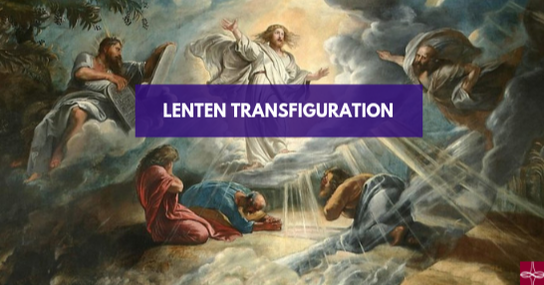



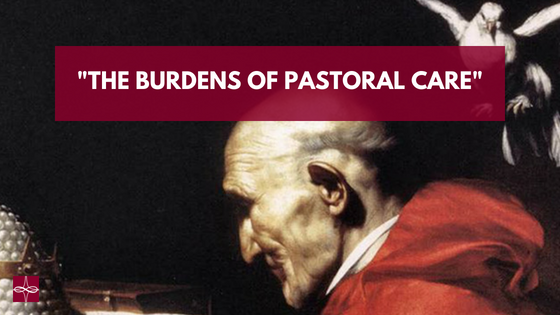

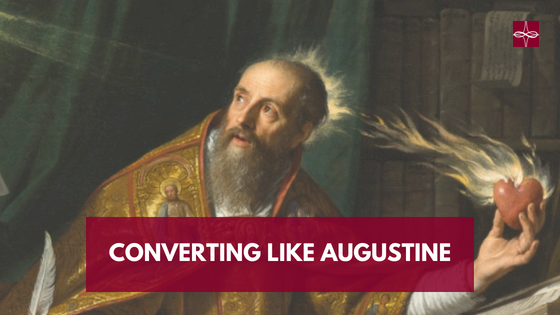





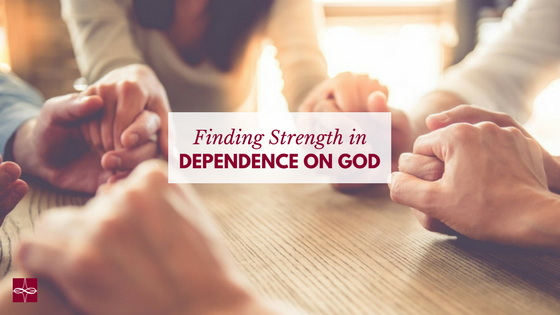

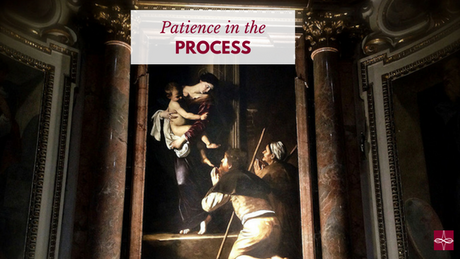



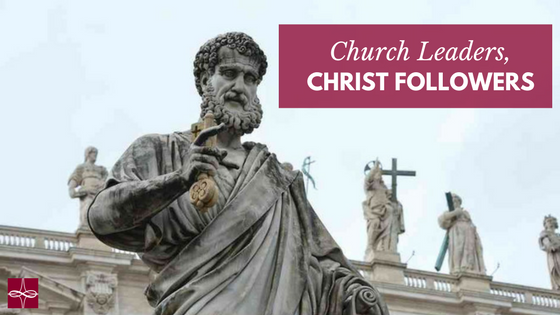
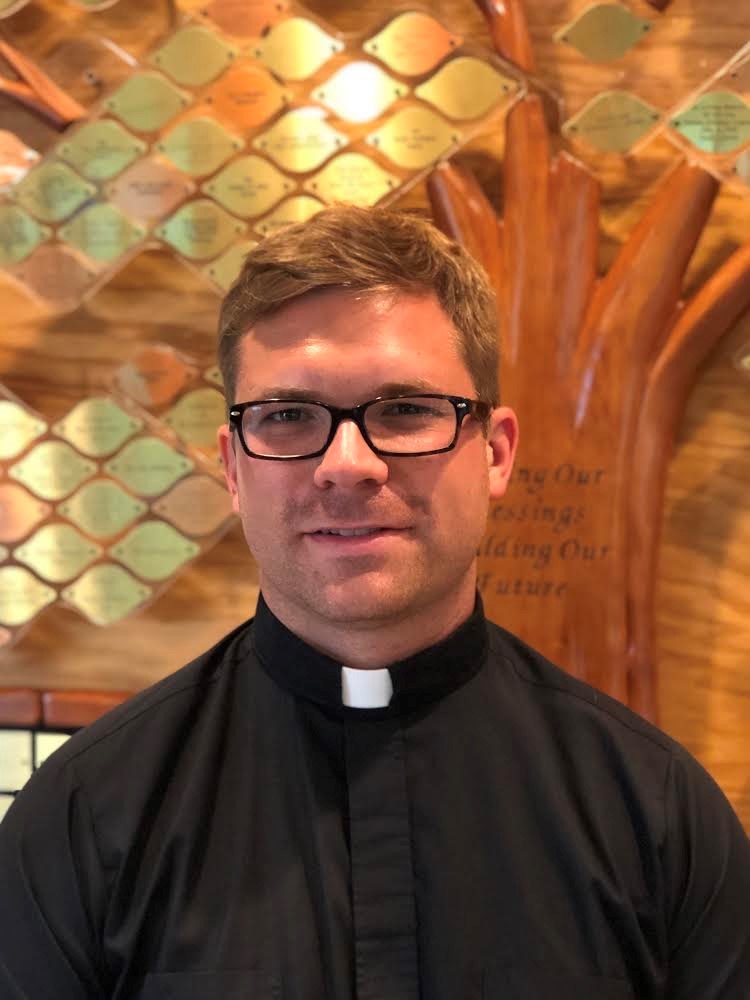

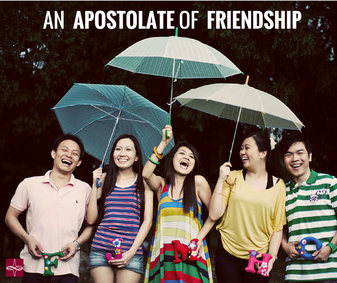

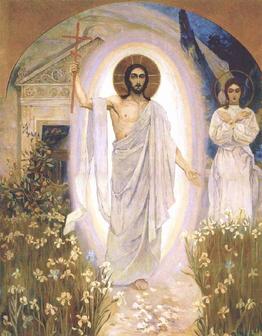

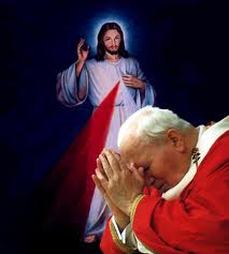
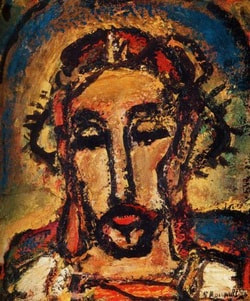
 RSS Feed
RSS Feed